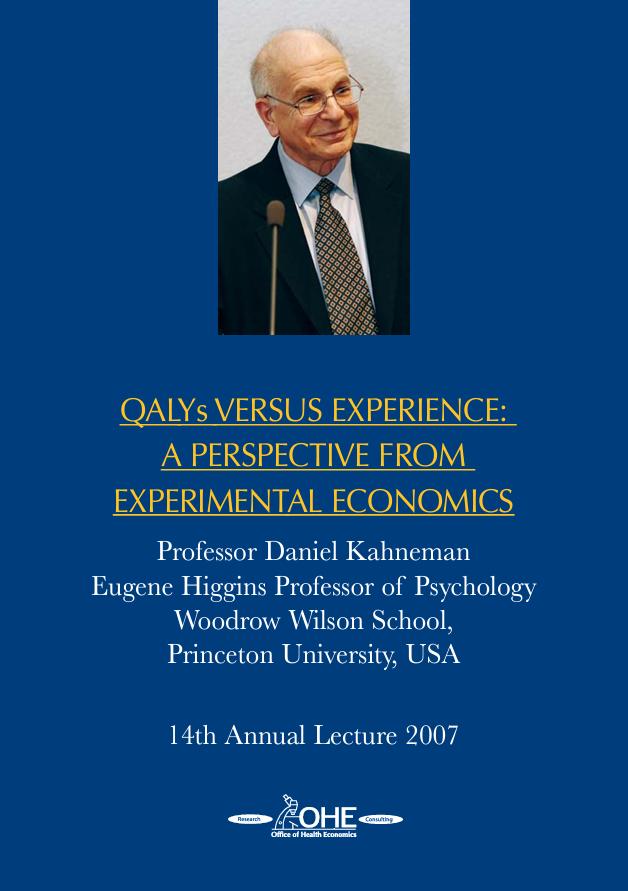Sign up to our newsletter Subscribe
Analysing Global Immunisation Expenditure

OHE’s 14th Annual Lecture was delivered by Professor Daniel Kahneman, winner of the 2002 Nobel Prize in Economic Sciences for his pioneering work integrating insights from psychological research into economic science, especially concerning human judgment and decision-making under uncertainty. His focus in the lecture was on whether and how the utility of health states can be measured and whether QALYs are adequate. He suggests that there are reasonable grounds for measuring both decision utility and experience utility, using measures that are duration-weighted and others that are not, and for measuring both patients’ values and public values. No single measure of utility is sufficient, however.
He suggests that it would be better to admit that the problem is conceptual than to continue to assert that the issues are only ones of measurement error:
“Ultimately, the issue of how to measure health states is a policy issue, which has to be decided as other policy issues are decided. The decision utilities and the experience utilities we measure are inputs to that decision. Once we admit that there is no single number that is the utility of a health state, someone has to make the difficult choices. I would lay that problem at the feet of the policy decision-maker rather than pretend that survey respondents can solve it.”
QALYs versus Experience: A Perspective from Experimental Economics


Notifications